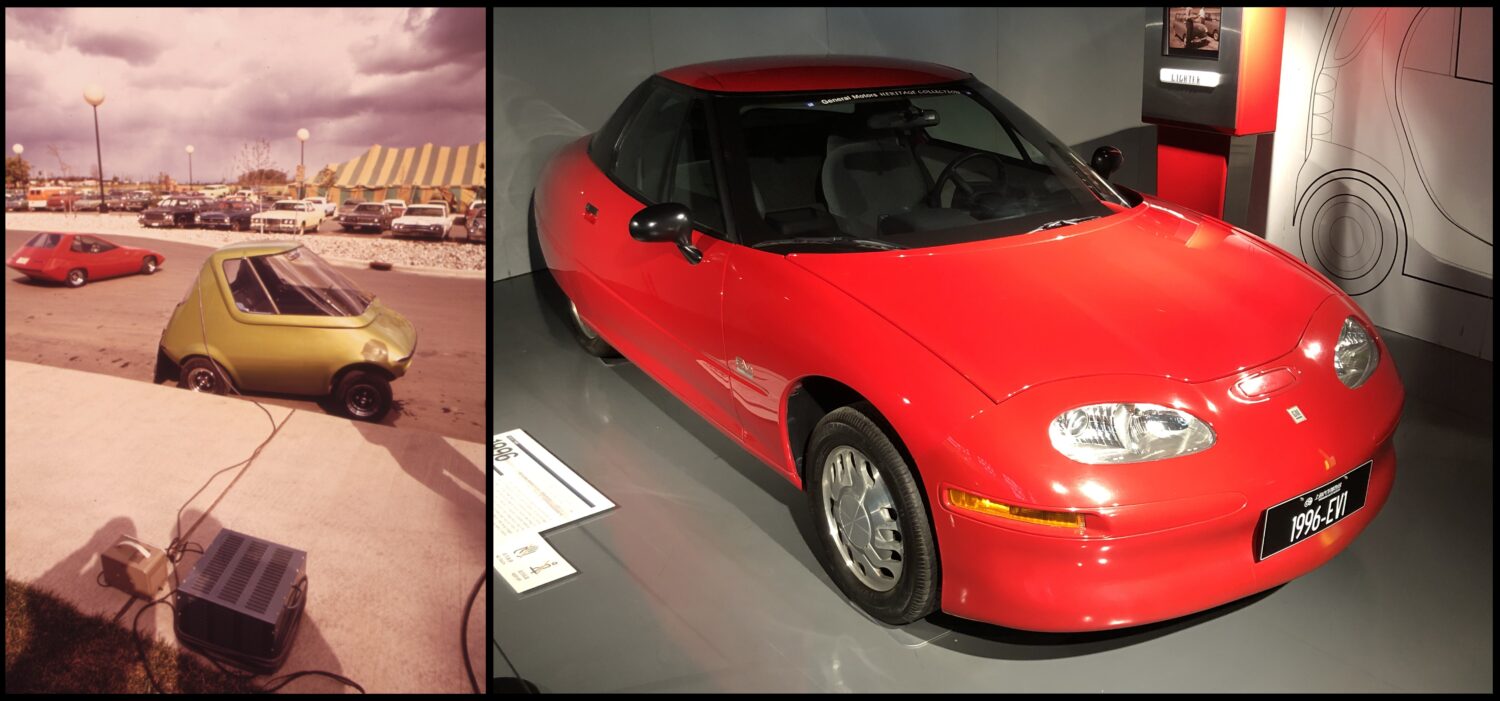Automakers are Partnering with an Ohio Senator to Decrease Consumer Choice and Increase Pollution
The Equation Read More
With all of the attacks on regulatory safeguards coming from the regulators themselves, you may have missed a new bill coming from Congress that would not only codify the mayhem of the current administration but neuter any future administration’s attempt to protect consumers and the environment from the auto industry. Perhaps unsurprisingly, the bill was written by a former car dealer, with the support of the automotive and trucking industry.
Senator Bernie Moreno’s (R-OH) “Transportation Freedom Act” has an ironic name given that it chips away at consumer choice in cars and will hit consumers in the wallet when many folks are already struggling with inflation and high cost of living. If anything, it will remove consumer freedom.
Below, I walk through a bill that would wreak havoc on the country and why General Motors, Stellantis, Toyota, and the automotive and trucking industries are choosing to gut protective regulations that have cut premature mortality from vehicle pollution nearly in half in just the last 15 years and saved consumers trillions of dollars.
Most of the bill is devoted to ensuring that consumers pay as much of their hard-earned money to the oil industry as possible by preventing the agencies charged with reducing emissions and fuel use from considering the best technology available, electrification. As part of this action, the bill nullifies pollution limits and efficiency standards through at least 2031, standards that were set based on the best available science. It would also indefinitely hold standards at today’s levels until whenever the agency gets around to setting something stronger. These standards are already undergoing regulatory rollbacks by the Trump administration, and while they’re sure to repeat mistakes they’ve made in the past using junk science and bad math, agency rulemakings are the appropriate venue to set pollution standards. Congress should not be in the business of legislating science.
In setting those future standards, not only can the regulators not consider electrification, but they also must prioritize industry arguments, and every two years the regulators would have an opportunity to arbitrarily alter any standards based on a biannual report based predominantly on input from oil, automotive, and trucking industry stakeholders.
Of course, any future standards held under the bill’s constraints would not mean much anyway, not just because the bill dismisses technology available today that is already working to cut emissions and fuel use, but because of the pernicious addition of a “deem to comply” provision in the bill text. This would ensure that manufacturers are only compliant with the least protective regulation in any given year, including a provision that would actually allow manufacturers to simply buy their way out of compliance with the Clean Air Act, something that is explicitly disallowed under current law.
The effect of all of these federal provisions would mean that the rules would be unable to move past the status quo, at least when it comes to passenger cars and trucks. This would curtail the innovation that has historically been driven by regulation of the sector, limiting consumer choice. But worse still, the bill completely destroys state efforts to regulate the industry, eliminating sections of the Clean Air Act that allow states to enforce standards stronger than those set by the federal government.
States have led the way on cleaning up the transportation sector and have been instrumental in giving consumers the choice to purchase an EV—preventing them from going beyond the meager level of protection this bill would mandate at the national level this will directly result in uncountable deaths, predominantly in communities already struggling against transportation pollution.
Of course, industry has a long history of not caring one iota for the harms its products cause, having fought everything from seat belts and air bags that protect the people purchasing their products to tailpipe emissions standards that protect the general public from their harms. So, it should come as no surprise that many of the largest companies and constituencies are choosing opportunistically to gut protective regulation if it will save them a few bucks.

As noted in our report, General Motors has led industry efforts against regulation for decades. In the 1950s they were the most vocal company against safety improvements like seatbelts, decrying both the tests and the technology, once claiming that a driver would have been safer ejected from the vehicle because he’d have “landed on soft ground.” In the 1970s they warned a court that they may have to shut down production entirely if they were forced to install catalytic converters in an effort to forestall pollution standards—when their efforts failed, not only did they then proceed to install catalytic converters across the board as required, but they even took out full-page ads promoting the technology’s benefits in an effort to sell cars. This duplicitous nature seems core to the company’s DNA and continued during the last presidential transition, so it’s no surprise they might once again try to use the political winds to axe regulations.
Stellantis (and prior iterations of the corporate home for the Chrysler, Dodge, Jeep, and Ram brands) has spent most of the past two decades in financial turmoil, with much of that caused by their own incompetence. Perhaps no other action best signifies this than their decision to eliminate virtually their entire car portfolio, an action that all but ensured they would spend the next decade paying hundreds of millions of dollars in fines for falling below a minimum required fuel economy standard made more difficult to achieve due to the elimination of the most efficient vehicles in their fleet. They’ve also been embroiled in two separate scandals for cheating emissions tests under the Clean Air Act, the first for their not-so-appropriately-named EcoDiesel engines and the second for the diesel engines installed in its Ram pickups. The wanton non-compliance surely shows a company that doesn’t care a fig about the rules meant to protect the public from its products.
Toyota was once historically seen as an environmental leader thanks to its promotion of the Prius hybrid. However, since 2010 its fleet fuel economy in the U.S. has improved less than half the rate of the industry overall (from 25.4 to 27.5 mpg, compared to 22.6 to 27.1 mpg, according to EPA data). This lack of environmental leadership in product sales has been paired with a behind-the-scenes lobbying effort to undermine environmental protections. While the façade of stewardship has repeatedly shown cracks over the years, Toyota’s support for the Moreno bill is a truly a “mask off” moment for the company.
While Sen. Moreno’s bill may have the support from these individual automakers and other parts of the automotive and trucking industries, that does not actually mean that this bill is good overall for the industry.
In fact, this bill will only serve to make the auto industry weaker. General Motors has already spent the past few years exiting first India, then Oceania, and, most recently, China. Stellantis already earns about half of its profits in North American light truck sales. The industry is ceding ground to countries like China, whose auto exports are growing thanks in large part to technology advancements made in electrification while domestic manufacturers like GM were busy stymying regulation to avoid having to actually invest in progress.
The Chinese EV industry seized upon the lack of political and manufacturing initiative in the United States to out-compete them, investing in the research needed to overcome the technical challenges of the very same battery chemistries U.S. automakers were shunning.
Incentives under the Inflation Reduction Act (IRA) and Infrastructure Investment and Jobs Act (IIJA, also known as the “bipartisan infrastructure law” or “BIL”) under the previous administration and complementary regulations reignited the domestic manufacturing investment needed to compete globally, indicated by the thousands of manufacturing facilities in the country primed to make a cleaner vehicle manufacturing sector possible. Unfortunately, those investments are now under attack by Republicans seeking to roll them back to pay for tax cuts for the wealthy. A recent Princeton study found that repealing the vehicle standards and incentives could put “As much as 100% of planned construction and expansion of U.S. electric vehicle assembly and half of existing assembly capacity could be at risk of cancellation or closure.”
The Moreno bill will put the domestic vehicle manufacturing sector out of step with the rest of the world, calling to mind Russian automaker Lada, whose success in the Soviet Union was closely tied to there simply being no alternatives. This is a path catastrophic for domestic manufacturing.

The proposed legislation is titled the “Transportation Freedom Act,” which begs the question—freedom for whom?
It certainly isn’t consumers who will, unfortunately, be at the mercy of an auto industry that time and again has required regulation to advance emissions and safety technology that benefits consumers. Worse, it will ensure that consumers remain permanently chained to an oil industry households already funnel nearly half a trillion dollars to annually.
It certainly isn’t labor. While the bill features tax breaks for manufacturers that meet certain requirements, including high levels of domestic content and assembly, union neutrality and wages in the 75th percentile, there are more direct ways to create and maintain high road labor jobs in the domestic auto manufacturing industry. Historically such tax breaks have not directly trickled down to wage growth, particularly in an insular market. More important for job growth is increased domestic industry investment, but with no regulations in place to promote technology advancement or investment in new supply chains, the industry is more likely to abandon domestic investment, killing jobs in the process.
It certainly isn’t the communities already bearing a disproportionate share of pollution from our transportation sector, particularly from freight. The regulations being overturned by this bill have been the central push towards eliminating tailpipe emissions from the trucking industry, which has a long history fighting for a right to pollute. This was led by state regulations ensuring that we get zero-emissions trucks on the road.
So let’s consider who is freer as a result of this bill: the oil industry, freer to drain drivers’ wallets at the gas pump and fuel climate change as they have for the past decades; the trucking industry, freer to pollute communities along freight routes and line their pockets instead of paying for the harm they’ve caused; the auto industry, freer to ignore the harms of their products and restrict choice to the gas guzzlers fueling their bottomline.
In short, this bill is about the freedom for industry to continue wreaking havoc on our lungs and our pocketbooks. And it must not move forward.
